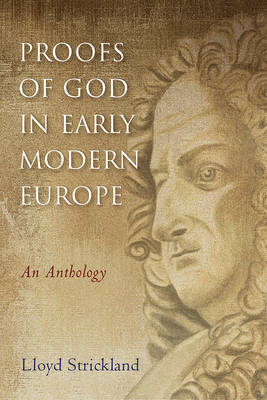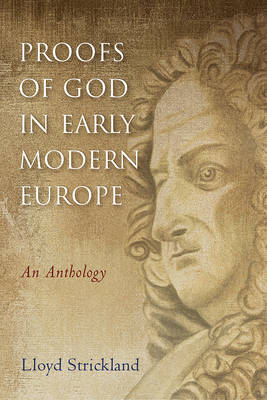
- Afhalen na 1 uur in een winkel met voorraad
- In januari gratis thuislevering in België
- Ruim aanbod met 7 miljoen producten
- Afhalen na 1 uur in een winkel met voorraad
- In januari gratis thuislevering in België
- Ruim aanbod met 7 miljoen producten
Omschrijving
Proofs of God in Early Modern Europe offers a fascinating window into early modern efforts to prove God's existence. Assembled here are twenty-two key texts, many translated into English for the first time, which illustrate the variety of arguments that philosophers of the seventeenth and eighteenth centuries offered for God. These selections feature traditional proofs--such as various ontological, cosmological, and design arguments--but also introduce more exotic proofs, such as the argument from eternal truths, the argument from universal aseity, and the argument ex consensu gentium. Drawn from the work of eighteen philosophers, this book includes both canonical figures (such as Descartes, Spinoza, Newton, Leibniz, Locke, and Berkeley) and noncanonical thinkers (such as Norris, Fontenelle, Voltaire, Wolff, Du Châtelet, and Maupertuis) and noncanonical thinkers (such as Norris, Fontenelle, Voltaire, Wolff, Du Châtelet, and Maupertuis).
Lloyd Strickland provides fresh translations of all selections not originally written in English and updates the spelling and grammar of those that were. Each selection is prefaced by a lengthy headnote, giving a biographical account of its author, an analysis of the main argument(s), and important details about the historical context. Strickland's introductory essay provides further context, focusing on the various reasons that led so many thinkers of early modernity to develop proofs of God's existence.
Proofs of God is perfect for both students and scholars of early modern philosophy and philosophy of religion.
Specificaties
Betrokkenen
- Auteur(s):
- Uitgeverij:
Inhoud
- Aantal bladzijden:
- 325
- Taal:
- Engels
Eigenschappen
- Productcode (EAN):
- 9781481309318
- Verschijningsdatum:
- 15/08/2018
- Uitvoering:
- Paperback
- Formaat:
- Trade paperback (VS)
- Afmetingen:
- 152 mm x 226 mm
- Gewicht:
- 439 g

Alleen bij Standaard Boekhandel
Beoordelingen
We publiceren alleen reviews die voldoen aan de voorwaarden voor reviews. Bekijk onze voorwaarden voor reviews.









